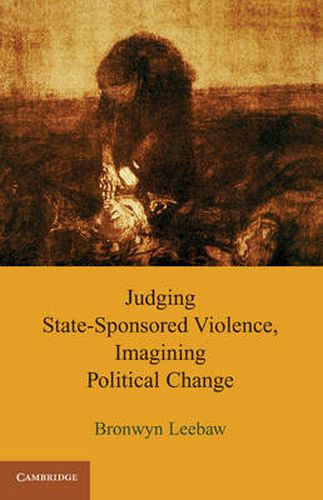Readings Newsletter
Become a Readings Member to make your shopping experience even easier.
Sign in or sign up for free!
You’re not far away from qualifying for FREE standard shipping within Australia
You’ve qualified for FREE standard shipping within Australia
The cart is loading…






How should state-sponsored atrocities be judged and remembered? This controversial question animates contemporary debates on transitional justice and reconciliation. This book reconsiders the legacies of two institutions that transformed the theory and practice of transitional justice. Whereas the Nuremberg Trials exemplified the promise of legalism and international criminal justice, South Africa’s Truth and Reconciliation Commission promoted restorative justice and truth commissions. Leebaw argues that the two frameworks share a common problem: both rely on criminal justice strategies to investigate experiences of individual victims and perpetrators, which undermines their critical role as responses to systematic atrocities. Drawing on the work of influential transitional justice institutions and thinkers such as Judith Shklar, Hannah Arendt, Jose Zalaquett and Desmond Tutu, Leebaw offers a new approach to thinking about the critical role of transitional justice - one that emphasizes the importance of political judgment and investigations that examine complicity in, and resistance to, systematic atrocities.
$9.00 standard shipping within Australia
FREE standard shipping within Australia for orders over $100.00
Express & International shipping calculated at checkout
How should state-sponsored atrocities be judged and remembered? This controversial question animates contemporary debates on transitional justice and reconciliation. This book reconsiders the legacies of two institutions that transformed the theory and practice of transitional justice. Whereas the Nuremberg Trials exemplified the promise of legalism and international criminal justice, South Africa’s Truth and Reconciliation Commission promoted restorative justice and truth commissions. Leebaw argues that the two frameworks share a common problem: both rely on criminal justice strategies to investigate experiences of individual victims and perpetrators, which undermines their critical role as responses to systematic atrocities. Drawing on the work of influential transitional justice institutions and thinkers such as Judith Shklar, Hannah Arendt, Jose Zalaquett and Desmond Tutu, Leebaw offers a new approach to thinking about the critical role of transitional justice - one that emphasizes the importance of political judgment and investigations that examine complicity in, and resistance to, systematic atrocities.